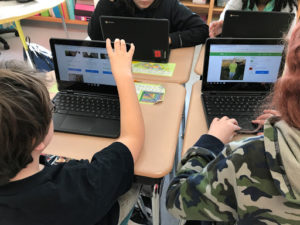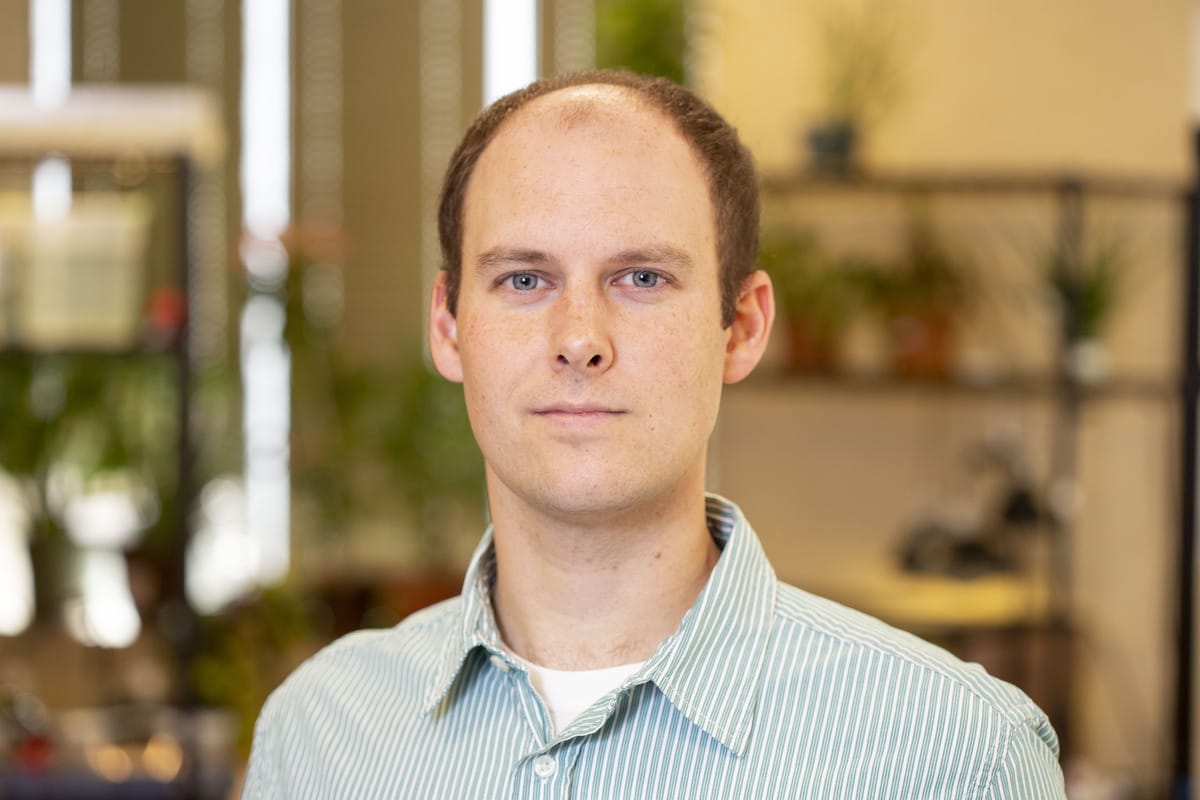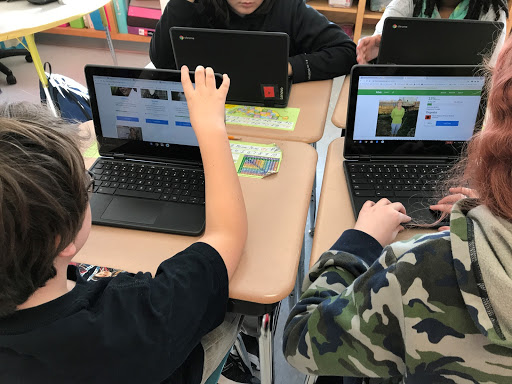The Van Andel Education Institute strives to be a place where teachers of all backgrounds are recognized and empowered. This week marks the third installment of our Blue Apple Teacher Feature, a series of blogs dedicated to highlighting exceptional educators who strive to build classrooms where curiosity, collaboration, and creativity thrive! Want to know the biggest obstacles students and teachers are facing today? Want to discover modern methods educators are using to foster growth and cooperation? Then please take a moment to meet Angela Marzilli, a 5th grade teacher from Maine and lead author of the microlending project, Lend a Hand.
Angela currently works as the PreK-12 STEM and PBL Coordinator at a public school department in Maine. Her teaching career began with a focus on math, specifically K-8 gifted math education. After five years working in a pull-out program for gifted math students, Angela returned to the classroom where she facilitated project-based learning for third, fourth, and fifth grades. She has led professional development workshops in inquiry based learning, math, science, and STEM integration. Although Angela’s primary role now is as a facilitator of adult learning and curriculum developer, she continues to facilitate high school level projects based through Forensic Science classes. When not working, she enjoys reading mysteries and having fun in Maine with her two young daughters.
Why did you get involved in education?
When I entered college, I was still so curious about everything that I couldn’t choose a major. I finally settled on education as a career in which I could feed my own curiosity while hopefully instilling that same curiosity in others.
What do you believe are the greatest challenges facing teachers today?
I feel like we learn more and more about what is good for students, and it’s tempting to try to fit everything into one short school day. The challenge is to stick with something like a project that’s well designed, fits what we need students to learn, and is engaging. Doing a few things well is better than trying to do a little bit of everything.
What do you believe are the greatest challenges facing students today?
I think the greatest challenge facing students today is taking time for reflection. Reflecting is a critical part of learning and development, and with the ability to constantly inundate oneself with information and other input, it’s easy to forget to take time to reflect. It’s our job as educators and adults to provide structured reflection time for students so they develop habits of reflection as adults.
What tools have you found most useful for inspiring students to think critically and creatively?
I think incorporating aspects of student voice and choice into each project is critical. Without that, students know that the entire project is planned for them and they have no motivation to think creatively or critically. With some choice in product or audience, for example, students know they have room to be creative, and that’s motivating.
How would you like to see education change in the next ten years?
I’d love to see students of all ages collaborating with peers from across the city and around the world, working on the real challenges we face in the world and coming up with creative ways to solve them.
How can parents assist students in developing curiosity and iterative thinking?
Let your kids be bored! When I was younger I had my most creative moments when I was surrounded by “stuff” (craft materials, old boards and nails, rocks and leaves) and had nothing better to do than figure out what to do with it.
What is one of the most authentic learning experiences you’ve ever done with your students?
A few years ago I worked with a local lobsterman and had my students redesign the inside of lobster traps to try to catch more lobsters and less bycatch. The lobsterman took the traps out and tried them, and we got a chance to see what each trap caught.
What do you wish for each student?
I wish for each student that they find something they can feel passionately about and are able to pursue that passion within their lives.

“I loved watching how my students got really wrapped up with the stories of all of the people on Kiva. They were very passionate about helping them out. They learned a lot of math and alot about storytelling in the process.” – Angela Marzilli on Lend a Hand
Around the world, millions of talents are going to waste, just because people lack the money to get started. In 2006, Muhammad Yunus won the Nobel Peace Prize for his innovative idea to help people empower both themselves and their community. His radical idea, microlending, involves making small loans to local businesspeople. Since that time, microlending has become an incredibly powerful force for good!

